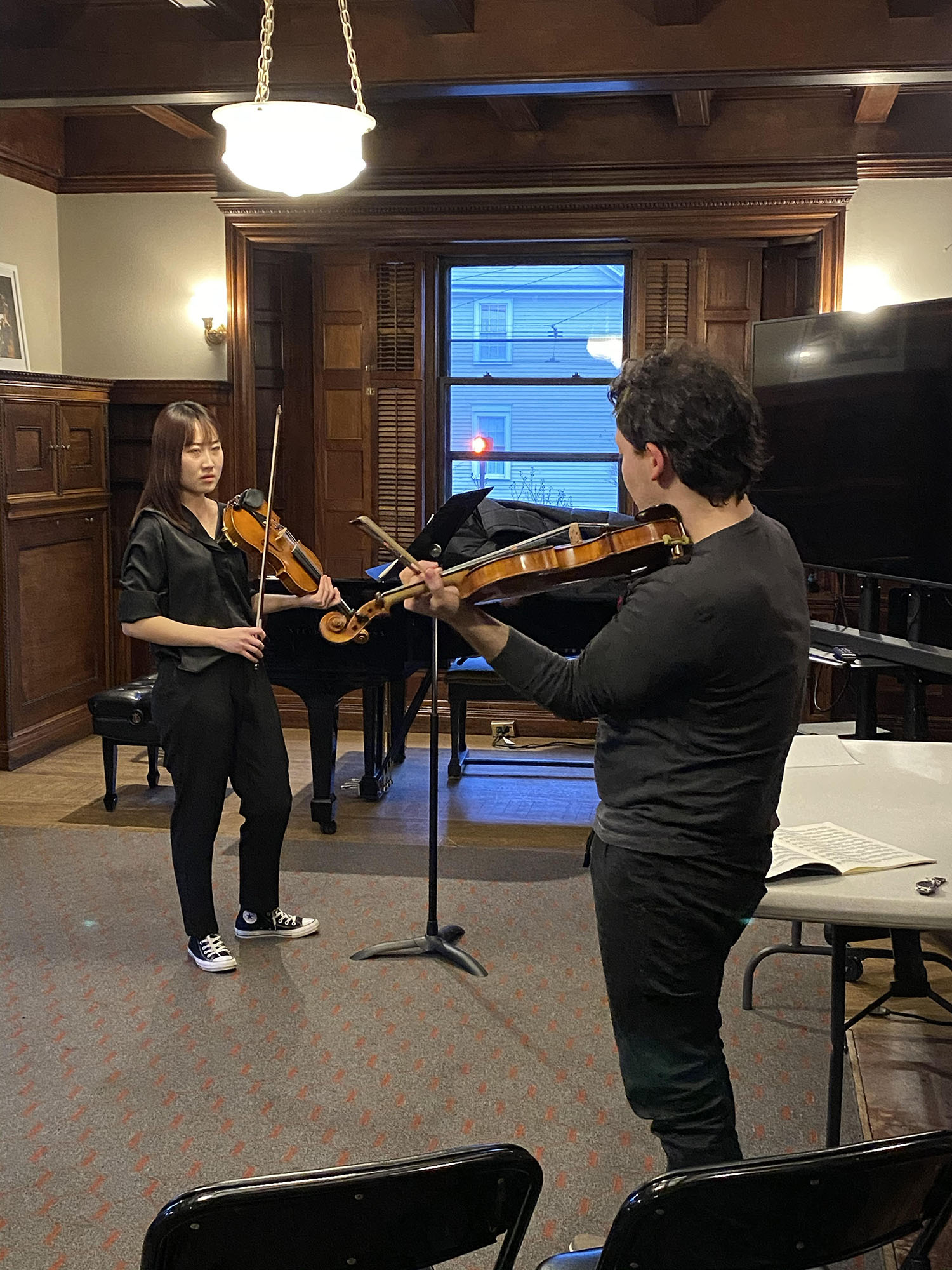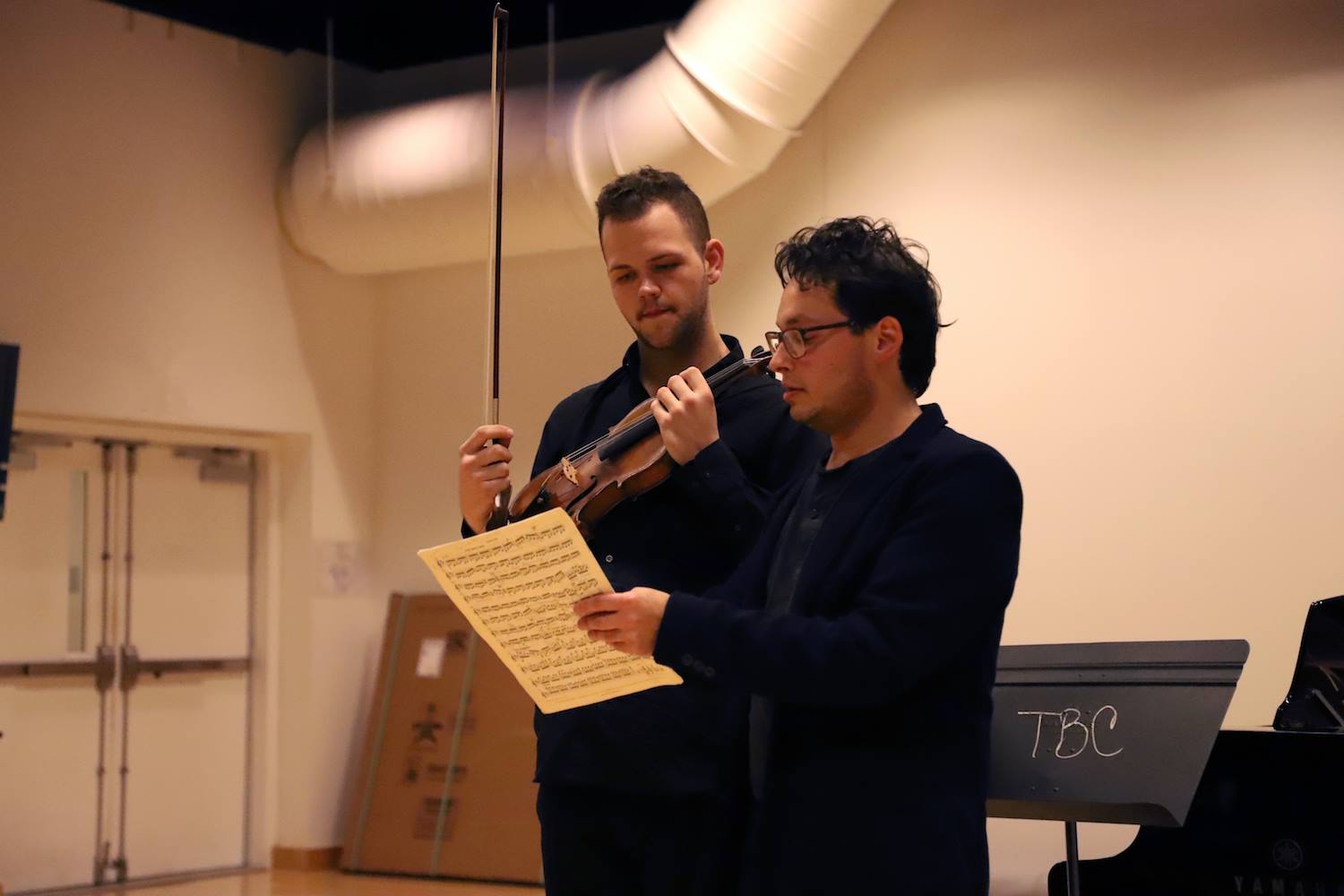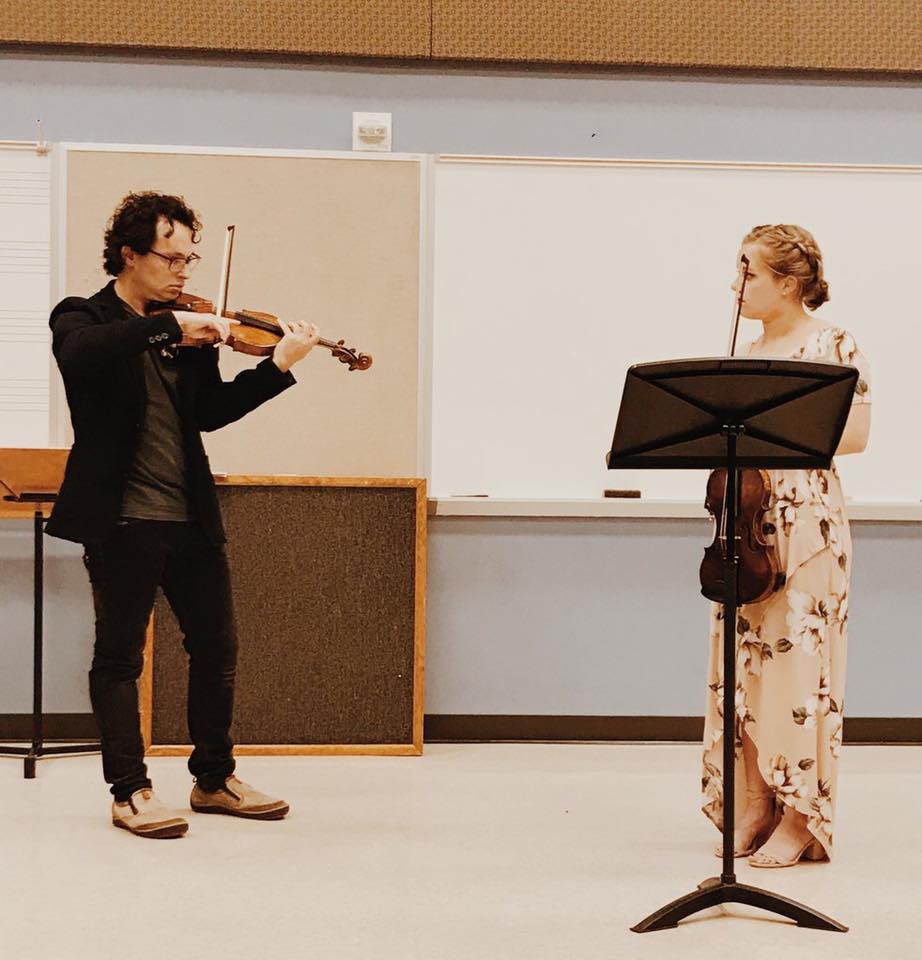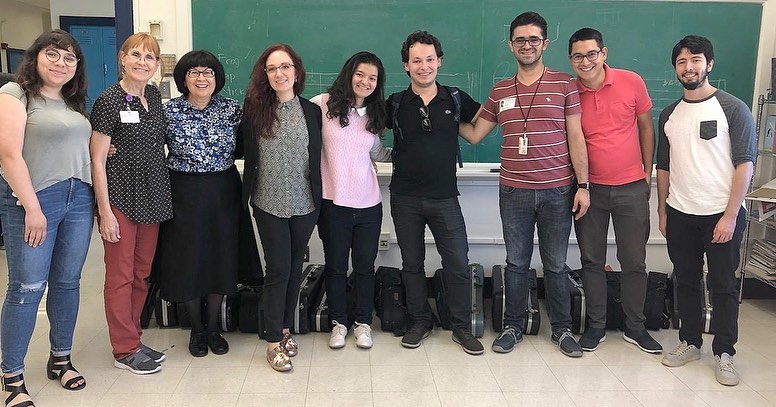I am part of a lineage of teachers whose experiences and deep thinking have each been influenced by their teacher before them. As a teacher myself, I aim to continue the traditions and mastery of the brilliant pedagogues I was fortunate to study with, including Roman Totenberg, Zinaida Gilels, and Donald Weilerstein.
Continuing a legacy of humanity and humility in music is one of the most important lessons I can give to my students. My teaching philosophy centers around advice Mr. Totenberg instilled in me as a young student: to simply listen. Listen to ourselves, our colleagues and mentors, and the needs of our audience. After years of reflection and practice, “Listen” has become a cornerstone in my own teaching and playing philosophy. We must all learn how to truly hear ourselves. We must also learn how to develop a sustainable, resilient patience and focus, and how to master the art of practicing. Once these elements are internalized, there are few limits to technical and artistic mastery.
This is the advice I strive to follow in my own practicing, travels and performance. I lead by example, and inspire my students to become invested in the inquiry process of being their own best teacher.
One of my main roles as an educator is to help my students invent, and then re-invent, their habits and approaches. This inquiry begins with proper technique, which is the gateway to unrestricted expression and creativity. Good technique is often seen as daunting, but in reality it is a logical synthesis of physics and athleticism. By breaking down each technique into their essential building blocks, even seemingly impossible passages can be efficiently solved one layer at a time.
Efficiency is also something that must be properly learned. Too often, dedicated students spend hours a day in the practice room only to arrive at their lessons with minuscule progress, or worse, a deterioration in their playing and harmful physical habits. As a pedagogue, it is my role to make sure a student understands how to minimize time in the practice room while maximizing output, so that playing is engaging, affirming, and physically comfortable.
Ultimately, the role of a musician is to be a communicator. While I work with students to establish technical and musical fundamentals, I concurrently encourage them to spend a generous amount of time exploring repertoire, different genres of music, and actively pursuing their personal artistic voice. A student’s own discoveries are the foundation of their music-making and by extension, contributions to their community.



